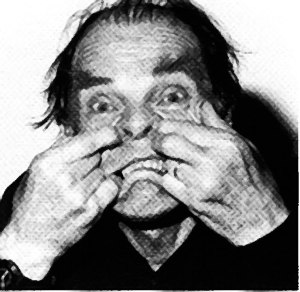Paul Feyerabend's Against Method

Tomas Petricek, University of Cambridge
http://tomasp.net | tomas@tomasp.net | @tomaspetricek
\[\definecolor{mc}{RGB}{0,32,172} \definecolor{cc}{RGB}{172,0,32}\]
Philosophy of Science

Philosophy of Science
The success of physics over the last three hundred years is to be attributed to the application of ‘the scientific method’. If other disciplines are to emulate the success of physics then that is to be achieved by understanding and applying this method.
Alan Chalmers (1999). What Is This Thing Called Science?
Karl Popper (1934/1959)
The Logic of Scientific Discovery
Thomas Kuhn (1962)
The Structure of Scientific Revolutions
Imre Lakatos (1978)
The Methodology of Scientific Research Programmes
Paul Feyerabend (1975)
Against Method
Bruno Latour (1987)
Science in Action
Anything goes

Anything goes
To those who look at the rich material provided by history, it will become clear that there is only one principle that can be defended under all circumstances. It is the principle: anything goes.
Anything goes is not a 'principle' I hold... but the terrified exclamation of a rationalist who takes a closer look at history.
Galilei and heliocentrism

For Galileo uses propaganda. He uses psychological tricks in addition to whatever intellectual reasons he has to offer.
Natural interpretations
Against the movement of Earth
- We do not feel any movement
- Stone falling from a tower argument
Galileo invents a new story
- Relativity of all movement
- Law of circular inertia
Natural interpretations
Assumptions that we do not question
- Hard core of research programmes
Common in any computer science field
- Pure functional programming & mutation
- Computations are modelled as monads
- Type systems are sound & prevent errors
Galileo and telescope
The first telescopic observations of the sky are indistinct and in conflict with what everyone can see with his unaided eyes.
The problem is different for celestial and terrestrial objects (...) because of the contemporary idea that celestial and terrestrial objects are made from different materials and obey different laws.
Language may have to be revised
The language in which we express our observations may have to be revised so that the new cosmology is not endangered by an unnoticed collaboration of older ideas.
Language may have to be revised
Avoid unnoticed interaction with older ideas
- F# computation expressions and monads
- Union types in type providers
The Galileo trial
The experts declared the doctrine to be 'foolish and absurd in philosophy' (unscientific to use a modern term) based exclusively on the scientific situation of the time.
It was incorrect.
Unscientific \(\neq\) wrong
Science is much more ‘sloppy’ and ‘irrational’
than its methodological image.
Against method

Theoretical anarchism is more humanitarian and is more likely to encourage progress than its law-and-order alternatives.
Consistency condition
New hypotheses should agree with accepted theories
The consistency condition is unreasonable because it preserves the older theory, and not the better theory.
In computer science
Follow the framework used by other solutions
Structure of science
The methodological unit to which we must refer is a whole set of partly overlapping, factually adequate, but mutually inconsistent theories.
In programming languages
Types in Dart, TypeScript, Idris and F#
Empirical observations
This need to wait and to ignore large masses of critical observations is hardly ever discussed in our methodologies.
In programming languages
Purely functional programming cannot do I/O
Clarity requirement
To 'clarify' the terms does not mean to study the additional properties of the domain in question, it means to fill them with existing notions from the entirely different domain of logic and to take care that the process of filling obeys the accepted laws of logic.
So the course of an investigation is deflected into the narrow channels of things already understood and the possibility of fundamental conceptual discovery is significantly reduced.
Theoretical anarchism

Alternative theories
The alternatives may be taken from the past as well. As a matter of fact, they may be taken from wherever one is able to find them - from ancient myths and modern prejudices; from the lucubrations of experts and from the fantasies of cranks.
Alternative theories
Charles Babbage
Builds on Adam Smith and division of labor
Ada Lovelace
Builds on poetry and music
John von Neumann
Computer model as a model of brain
Metaphors in programming
Concurrency?
Language?
Libraries?
Rationalism as after-thought
'Voice of reason' is but a causal after-effect of the training.
We only present perfect after-version in papers
- Science does not start with problems
- Discovery and justification is intertwined
- Metaphors behind theories matter
Be careful when reading papers we love :-)
Summary

Summary
There is no rule of thumb for distinguishing good and bad science.
Epistemological anarchism is more likely to encourage progress than its law-and-order alternatives.
I make my selection in a highly individual way. Science needs people who are adaptable and inventive, not rigid imitators of ‘established’ behavioural patterns.
